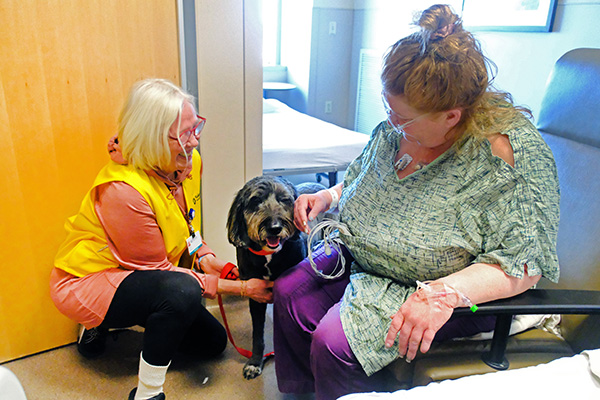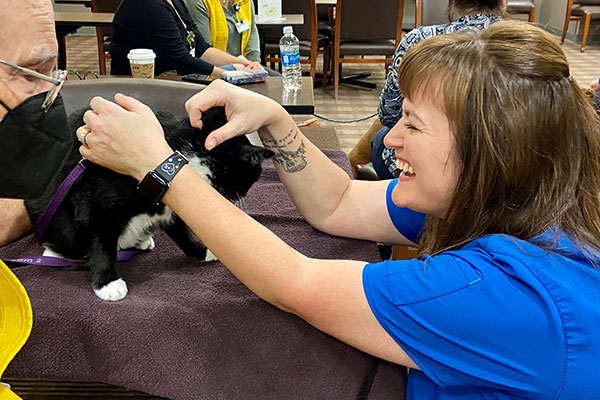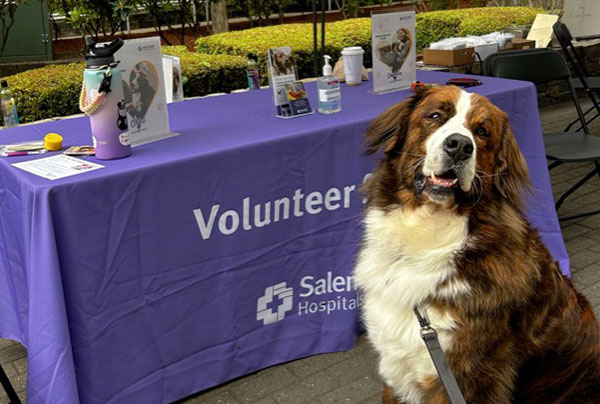Pet therapy at Salem Health
For more than 20 years, pet therapy animals, along with their handlers, have left their paw prints on hearts across our organization. The immense impact of pet therapy cannot be described, but it can be felt when a pediatric patient smiles while petting the cat on their lap or when a patient says how happy they are to see a dog in their hospital room because they miss their dog at home.
At Salem Health, certified volunteer pet therapy teams bring comfort to patients and staff in our hospitals and clinics. Serving as a pet therapy volunteer is a rewarding experience for you and your pet.
Being on a pet therapy team
Pet therapy qualifications
• Pet is a least one year old.
• Handler has lived with their pet for at least six months.
• Handler must be at least 16 years old.
• Handler must pass a background check (18+).
• Proof of dog license.
• Proof of pet immunization history, including rabies, kennel cough and distemper.
• Proof of pet therapy certification (if previously certified).
* If not certified as a pet therapy team, then please provide a copy of Canine Good Citizen Certificate. (See section below to learn more.)
Pet therapy training for dogs: What do I need to start?
First, dogs must be Canine Good Citizen (CGC) certified before onboarding (see website to learn where to obtain) OR previously certified through an American Kennel Club accredited pet therapy program. After receiving a CGC, then pet therapy certification is required.
Salem Health has partnered with Alliance of Therapy Dogs trainer/observers to construct a training program for dog owners who have obtained Canine Good Citizen (CGC), but who still need a pet therapy certification or renewal.

Apply and interview
Watch our five-minute info session and apply. Click here.
Within 72 hours of applying, we will call you to set up your interview.

Onboarding
After your interview, we'll give you instructions to receive your TB test, and we'll send you computer training to complete.

Training
We'll work with you to set up your training schedule. This is when you and your dog will work actively towards your Pet Therapy Certificate, usually consisting of a few training dates here on the Salem Hospital campus. Once you receive your Pet Therapy Certificate, you will start serving regularly!
We currently accept pet therapy dogs and cats. If you have any questions
about our process, please call 503-814-1795.


